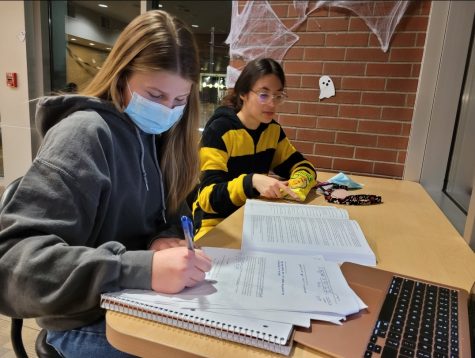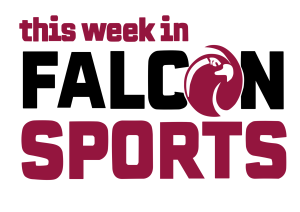Stress-free study styles
Students reveal their favorite study methods for midterms and finals
November 5, 2021

When it comes to studying for midterms and finals, stress and crying tend to be some of the words most commonly associated with hitting the books. On the bright side, however, implementing useful study skills and growing more familiar with one’s own learning process can often eliminate such negative feelings.
Several Seattle Pacific University students touched on this process by expanding into studying for their midterms, methods used and advice for others.
Lay Paw, a sophomore cellular molecular biology and honors liberal arts major, named several online resources that she uses to organize her notes and studies.
“I like to create a checklist for all the things I have to do,” Paw said. “I used to use a physical planner, but it was a hassle, so now I only use Notion as an online planner. I also use Outlook to block out when I have classes and work, so I can see when I am free.”
Paw also stressed the importance of becoming familiarized with the test material.
“One thing that helped me pass my midterms is to do a lot of practice problems or to review what I learned through active recall,” Paw said. “Doing that will tremendously increase your focus and will help you retain information for your tests.”
Yu-jin Youn, a sophomore physiology major, also touched on practice and familiarization to better process information for an exam.
“I study by initially taking notes, going back to review the notes and filling in important things I missed beforehand,” Youn said. “I also use practice problems to test my knowledge and work through problems I’ve missed to better my understanding of the material.”
Youn emphasized the importance of not overworking, as it may end up causing more stress.
“I definitely learned that taking breaks is important because being burnt out isn’t beneficial in any way,” Youn said. “I love to study with my peers because we get to take little brain breaks as we study, to prevent mental breakdowns and just as a reminder that we’re not alone.”
Rebecca Cavanaugh, a junior majoring in history, philosophy and honors liberal arts, made a similar comment regarding studying with peers.
“Working with study partners is always good,” Cavanaugh said. “Don’t pick people just because they’re your friend, though; pick the ones that are going to keep you accountable.”
In terms of study techniques, Cavanaugh leans towards a more kinesthetic approach.
“One of the main study methods I use is rewriting all of my notes. I remember things best when I write them with my hand instead of typing,” Cavanaugh said. “It just helps me to better compartmentalize what I’ve learned, so that I can access it better.”
Rather than procrastinating and failing to construct a schedule for herself, Cavanaugh considers planning ahead to be an important element while learning new materials.
“Midterms usually go really well for me, because I take advantage of the study guides that my professors make for me,” Cavanaugh said. “I try to start working on them sooner rather than later, so that I have time to go through all of my notes.”
Parker Landon, a sophomore honors student majoring in computer science and applied math, also touched on the importance of not putting things off in his process of preparing for exams.
“When I think about my experiences with studying for finals, I don’t picture myself cramming material in my mind frustratingly,” Landon said. “What I’ve found is that the bulk of my finals studying is accomplished not in the days leading up to finals, but rather after every class period and during the completion of homework assignments.”
Landon continued by explaining his process of working through materials, with regards to his STEM classes.
“The goal I set for myself is to feel confident about the previously presented material before moving on to new material,” Landon said. “This is especially important in my math and computer science classes where information presented in one lecture or reading serves as foundational knowledge for information presented in the next.”
When it comes to reviewing class material, Landon strongly advises against putting things off until exam week.
“My advice to others, then, would be to not procrastinate the understanding of course content until finals week,” Landon said. “Clear up any shakiness in your knowledge before it becomes a faulty foundation for understanding the topics that follow.”
In the end, the process of studying can benefit students in so many ways beyond simply passing one’s classes and getting a college degree.
“Anyone can be a self-starter in the field if they are ambitious and disciplined enough to study that knowledge,” Landon said. “For me, then, good studying skills have been so valuable to me, because they let me pursue any topics and create any projects that are meaningful to me.”
























































































